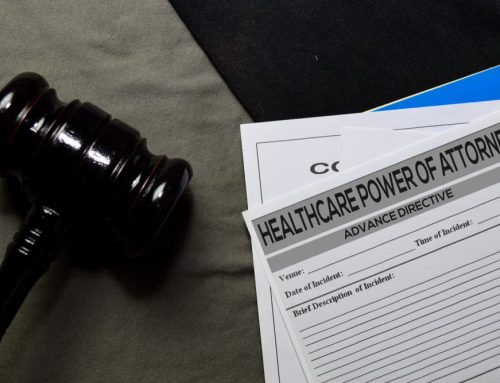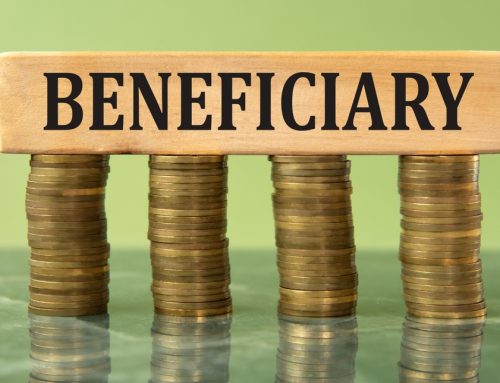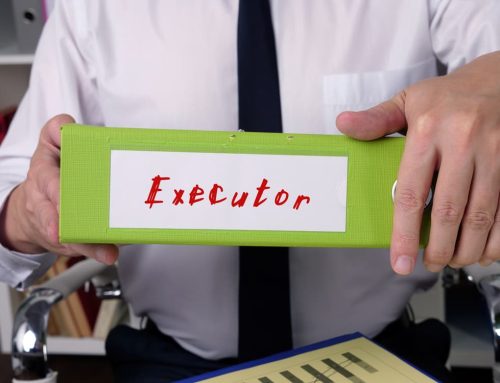The Importance of Powers of Attorney in Estate Planning
The Importance of Powers of Attorney in Estate Planning

Estate planning can be a sensitive and overwhelming topic to think about. However, it is crucial to consider the importance of having powers of attorney in place to protect your financial and healthcare decisions. Powers of attorney allow you to appoint trusted individuals to make choices on your behalf if you cannot do so. This important document ensures that your wishes are carried out and your affairs are managed in times of need.
If you haven’t yet considered powers of attorney in your estate plan, attorneys will encourage you to take the necessary steps to do so. Estate plans not only consider what happens after you pass away, but also protect you during your life if you become incapacitated. This is where powers of attorney are so important. Contact an power of attorney lawyer near you to address this aspect of estate planning that you should never overlook.
Understanding Powers of Attorney
Powers of attorney are legal documents that grant individuals the authority to act on behalf of another person in specific situations. When someone else has the power of attorney, they act as if they were you when making certain decisions. You have the power to choose the type of power of attorney that someone else may have and control its scope.
There are different types of powers of attorney, including financial and healthcare powers of attorney. You may grant someone more than one power of attorney at the same time. However, it makes sense to have one person exercise all powers of attorney to prevent any confusion or miscommunication.
Financial Power of Attorney
A financial power of attorney allows you to appoint someone to manage your financial affairs if you become incapacitated or unable to make decisions. This individual, referred to as your agent or attorney-in-fact, can handle tasks such as paying bills, managing investments, and making financial decisions on your behalf.
Healthcare Power of Attorney
On the other hand, a healthcare power of attorney grants someone the authority to make medical decisions for you if you cannot do so. This individual, known as your healthcare proxy or agent, ensures that your medical treatment preferences are followed and that you receive the care you desire. In this regard, you may also consider advance care directives limiting the care you may receive in certain circumstances.
Why You Need Powers of Attorney in Your Estate Plan
Having powers of attorney in place is essential for several reasons.
Ensures Decision-Making Continuity
By appointing trusted individuals to act on your behalf through powers of attorney, you ensure continuity in decision-making. If you are unable to make decisions due to illness or incapacitation, your chosen agents can step in and make choices that align with your preferences.
Protects Your Interests
Powers of attorney protect your interests by allowing you to designate individuals you trust to handle your financial and healthcare matters. Without these legal documents in place, decisions regarding your assets and medical treatment may be left to the discretion of others, potentially leading to conflicts or outcomes that do not align with your wishes.
Avoids Court Intervention
Without powers of attorney, if you become incapacitated and unable to make decisions, the court may need to appoint a guardian or conservator to manage your affairs. This process can be time-consuming and costly and may result in decisions that do not reflect your desires. By proactively establishing powers of attorney, you can avoid the need for court intervention and maintain control over who manages your affairs.
Your family can end up under a considerable amount of strain if the power of attorney is not there when it is needed. There may even be a chance that your family may have to initiate guardianship proceedings that can be costly and difficult.
You Cannot Wait Too Long to Sign a Power of Attorney
There is a time when it can become too late to grant someone a power of attorney. Like any legal agreement, you must be of sound mind to give someone the authority to act in your place under certain circumstances. If your health has already declined, where you do not have the necessary capacity, any power of attorney may be invalid if it is challenged. Thus, you need to act now, when times are good, so you have the necessary protections in place when they are not. The last thing that your family needs during an already difficult time is to have questions about whether they can make decisions.
The Role of an Estate Planning Lawyer
When it comes to incorporating powers of attorney into your estate plan, seeking the guidance of an experienced estate planning lawyer is highly advisable. An estate planning lawyer creates comprehensive estate plans that protect your interests and ensure your wishes are properly put in writing.
How an Estate Planning Attorney Can Help
- Legal Experience: An estate planning lawyer has the legal knowledge and experience to draft powers of attorney that comply with state laws and regulations.
- Tailored Advice: A lawyer can provide personalized guidance based on your unique circumstances, ensuring that your powers of attorney reflect your specific wishes and needs.
- Drafting Documents: An estate planning attorney can draft the documents you need, including a power of attorney, to ensure they are correct.
- Comprehensive Estate Planning: In addition to powers of attorney, an estate planning lawyer can create a holistic estate plan that addresses asset distribution, healthcare directives, and other important considerations.
- Updates and Reviews: A lawyer can review and update your estate plan as needed to ensure it remains current and aligned with your evolving circumstances.
If you have not yet included powers of attorney in your estate plan, now is the time to take action. Contact an estate planning attorney near you to discuss the importance of powers of attorney in estate planning and begin establishing these critical legal documents. Don’t wait until it’s too late to protect your financial and healthcare decisions – consulting with a knowledgeable Florida estate planning lawyer can provide you with peace of mind and ensure your wishes are fulfilled.
Have questions about how to get started on your estate plan or estate needs?
Have questions about how to get started
on your estate plan or estate needs?
Contact the experienced estate planning professionals at The Estate Plan
by calling us at (305) 677-8489.
Contact the experienced estate planning professionals at The Estate Plan by calling us at
(305) 677-8489.



















